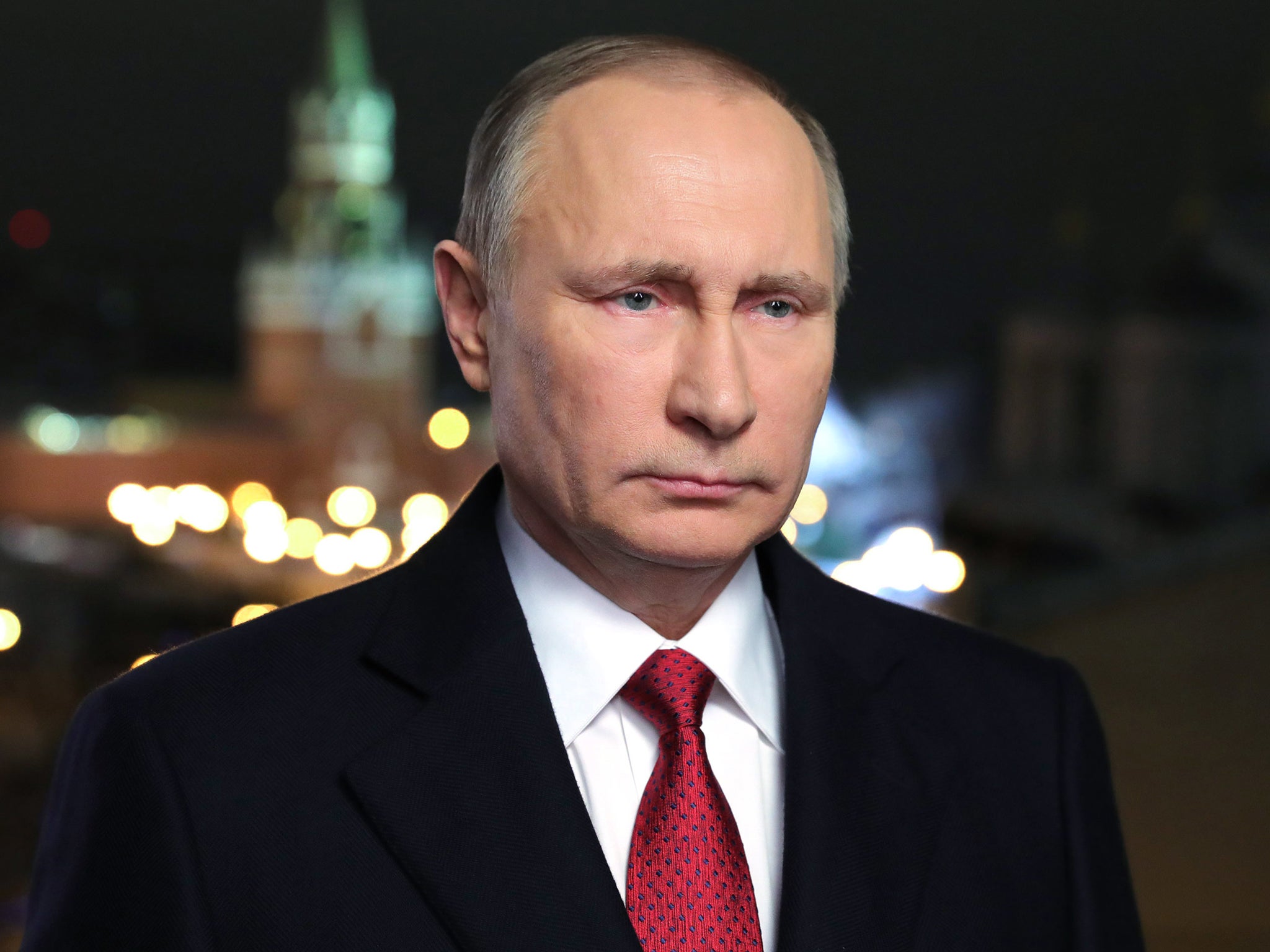US intelligence report concludes Russia ordered hacking campaign to improve Donald Trump's election chances
The report warned of the possibility of similar campaign on US allies

Intelligence officials concluded that Russian President Vladimir Putin ordered the hacks of the Democratic National Committee to help Donald Trump win the 2016 election, according to an declassified report.
The report comes a day after intelligence chiefs – including National Intelligence director James Clapper and NSA director Michael Rogers – testified before the Senate Armed Services Committee on their findings in their investigation of the hacks.
"We assess with high confidence that Russian President Vladimir Putin ordered an influence campaign in 2016 aimed at the US presidential election," the report reads, "the consistent goals of which were to undermine public faith in the US democratic process, denigrate Secretary [Hillary] Clinton, and harm her electability and potential presidency."
Motivation behind Mr Putin's apparent order of the hacks, the report says, was rooted in a vendetta the Russian president had against the former Secretary of State.
"[H]e has publicly blamed her since 2011 for inciting mass protests against his regime in late 2011 and 2012," it adds, "and because he holds a grudge for comments he almost certainly saw as disparaging him."
"We assess Moscow will apply lessons learned from its Putin-ordered campaign aimed at the US... election to future influence efforts."
According to the 25-page document, the leader of the nationalist Liberal Democratic Party of Russia, Vladimir Zhirinovskiy celebrated the possibility of a Trump win. He apparently proclaimed that "Russia would 'drink champagne' in anticipation of being able to advance its positions on Syria and Ukraine."
Sections of the highly classified report delivered to President Obama on Friday were also made public. They reveal that the CIA, FBI, and NSA agreed that Russia sponsored social media "trolls" in addition to the cyber warfare to disseminate false and negative information about Ms Clinton to the benefit of Mr Trump.
"A journalist who is a leading expert on the Internet Research Agency claimed that some social media accounts that appear to be tied to Russia’s professional trolls—because they previously were devoted to supporting Russian actions in Ukraine—started to advocate for President-elect Trump as early as December 2015," it said.
Earlier on Friday, President-elect Trump met with intelligence agencies regarding the issue, and while he finally conceded the likelihood of a Russia-backed hack of US systems, he insisted they did not help him win the election.
"While Russia, China, other countries, outside groups and people are consistently trying to break through the cyber infrastructure of our governmental institutions, businesses and organisations including the Democratic National Committee, there was absolutely no effect on the outcome of the election, including the fact that there was no tampering whatsoever with voting machines," he said, contrary to what the report actually states.

"We did not make an assessment of the impact that Russian activities had on the outcome of the 2016 election," the report said.
Mr Clapper, who will leave his post come 20 January, said in his Thursday testimony that the hacks did not change the vote tallies, but intelligence agencies did not review how the information disseminated could have affected voters' decisions.
“We have no way of gauging the impact ... it had on the choices the American electorate made," he said. "Whether or not that constitutes an act of war is a very heavy policy call that I don’t believe the intelligence community should make."
Bookmark popover
Removed from bookmarks